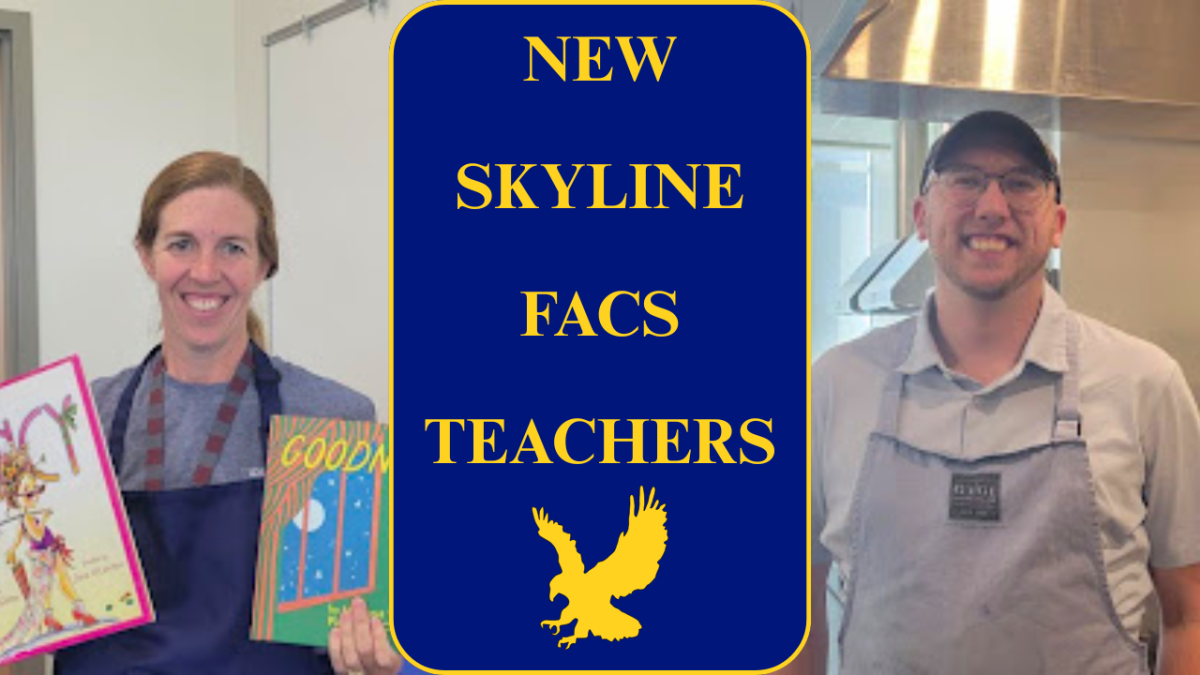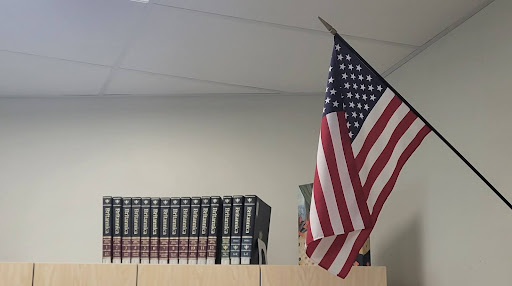
It may be that in all of Skyline High School’s history, there is not a more successful club; they have been number 1 in the entire state of Utah for 4 years in a row. And why is that? Many Skyline High School students may not know much about the club, but there is anything but a lack of something interesting to the reason that Skyline’s Speech and Debate Club does so well. There is an almost secret ingredient that propels Skyline to success, and the secret ingredient that causes such high-school-debate hegemony is the structure. Or, in other words, the leadership of the club. This year, there are new leaders filling out positions.
Skyline has a fairly strong way of conveying knowledge and teaching Speech and Debate. The school uses a system that has students as the teachers. “A lot of what we do here is very student-centered,” said Skyline debate coach Timothy Henry. The club is broken up into different events that student-teachers, called captains, teach and run. Each year there is an election process that dictates who teaches what event and who has what role. The election process consists of applicants who try for certain positions and then are decided by Henry and outgoing seniors. Henry said, “Ultimately it’s my decision in the end, but usually there’s a big collaboration between myself and outgoing seniors who want to be involved in the process.”
The structure is very student-centered; however, there is room for the coach to be a part of the club. “[My role is] important as much if [student captains] need resources, I try to get a forum. Some labs [labs being different sections of the club in which an event is taught], […] but mostly I try to not step on their toes.” Henry goes on to explain the number one thing he learned from using this leadership structure, saying, “[I’ve learned] that trust is important. Putting your trust into them… and […] I definitely want everyone who does this event to have this positive experience from Captain on down to novices.” Ultimately, the way leadership works at Skyline, is designed to cycle through. He said, “We pass down from captain to novice, then novice becomes captain, then captain passes down to novice, and it’s just the culture that cycles upward over time.”
That cycle has been going on for a long time. One member of that cycle is one of two overall captains of Skyline Speech and Debate, Maylan Jessop. Last year, Jessop was the captain of an event called Congress, but now she is one of the captains in charge of the entire club. “It’s been a little bit difficult transitioning away from the teaching aspect of debate to a more administrative role. I think it’s really been hard, because I really enjoyed teaching novices and stuff, but it also fills me with a lot of pride and excitement for our future,” Jessop says. Jessop continues by laying out how Skyline High School could find success this year, saying, “I think, as long as everyone is continuing to be dedicated, which, of course […] they are, we’ll have a really good season.” Jessop echoes that point by further explaining how she intends on being dedicated herself. “I’m just trying to keep pushing people to do as best as I can, and do as good as they can– for the novices, especially. And just making sure that they have good teaching and good work ethic throughout the whole year, that’s really going to push our success,” she said.
The leadership of debate is a really valuable thing, not only because of how unique it is, but because of what it yields, with Jessop saying, “Our structure is very different from a normal club in the sense that all of the things that we teach are directly from peers […] I think that really […] continues to foster our sense of community, but it also helps us understand how we can teach the program.” Being taught by peers is effective and helps contribute to more than just success. “I think [peer-aid] also helps create a sense of security. You’re not afraid to ask questions to peers as you are to perhaps teachers, and that really helps us foster growth between each other through positive peer pressure and also just teaching from and learning from each other,” Jessop said.
Overall captains are great contributors to Debate Club, and another overall captain is Hyrum Gonzalez, who highlights the differences in leadership styles that he and Jessop have when it comes to being an overall captain in Debate. “Me and my co-captain have very different leadership styles […] I just let [students] do their own thing,” Gonzalez said. He tries to provide students with two things, saying, “One, make sure that everyone has the resources so they can do whatever they want. And two– everyone, whenever they actually do need help, I’m there, I’m very supportive and I can give them whatever they need.”
Despite the differences in leadership style, Gonzalez believes that having two different ways of thinking is a good thing, “If you have a difference in opinion, sure, there’s a little bit more risk, things might not [go] the exact same way, but then there’s also a bigger reward, right?” he said. Gonzalez proves that point to be true by highlighting certain accomplishments that he, with the other overall captain, were able to do. “We are organizing merchandising right now. We have already organized a website. These things that previous captains have thought were too difficult or too time consuming. We got that knocked out within the beginning of the year!” Gonzalez said. Both Gonzalez and Jessop have been able to make great accomplishments in their short time being overall captains, which ultimately comes to something Henry said: “The success of one-hundred percent of this team is based off of the students.”



